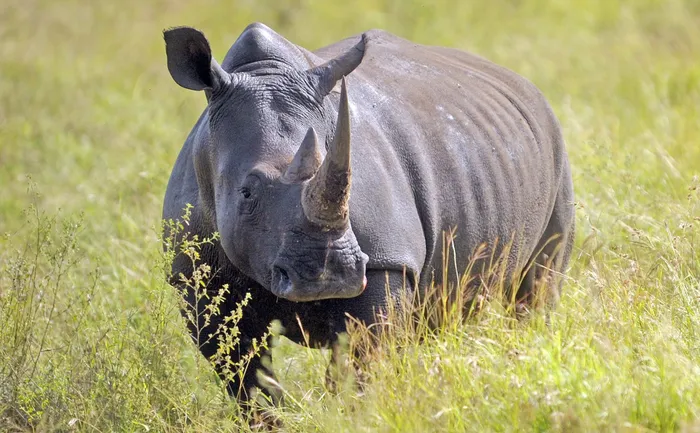SA helps neighbouring Mozambique boosts rhino populations with recent translocation

South Africa is helping neighbouring Mozambique boost its rhino populations with recent translocation
Image: File
CONSERVATIONISTS hope the translocation of 10 additional critically endangered black rhinos to Zinave National Park in Mozambique will secure the first founder population of black rhinos since becoming locally extinct five decades ago.
The rhinos, five male and five female, were donated by South Africa’s provincial conservation entity, Ezemvelo KZN Wildlife, in collaboration with Mozambique’s National Administration for Conservation Areas (ANAC) and Peace Parks Foundation, with financial support from players of UK People’s Postcode Lottery.
With 37 rhinos already introduced and thriving, this initiative aims to enhance biodiversity and reinforce the park as Mozambique’s only ‘big five’ national park, setting a new standard for wildlife conservation and ecological restoration.
“This is a significant conservation success. We congratulate the government of Mozambique and its co-management partner, Peace Parks Foundation, on achieving this important milestone. Establishing new founder populations is one of many critical interventions to secure the future of these species,” said Forestry, Fisheries and the Environment Minister Dion George.
Peace Parks Foundation approached Ezemvelo KZN Wildlife for a donation of black rhinos to boost the numbers to form a viable breeding population of black rhinos in Mozambique. An agreement was reached on the ten rhinos sourced from Ithala Game Reserve and Ezemvelo’s three Black Rhino Range Expansion Project.
George said South Africa’s successes in rhino conservation and the implementation of anti-poaching and anti-trafficking efforts have stabilised its rhino populations, thereby placing the country in a position as a source of rhino for range States in Africa which have either lost many or all of their rhino and wish to re-establish populations or augment current populations.
ANAC Director General Pejul Calenga said: “For the year 2025, this will be the first translocation of rhinos to our country, and we are pleased with this process. We thank the South African Government and all partners involved. We would like to take this opportunity to reaffirm our commitment to protecting Mozambique’s conservation areas and to invite all friends of conservation, as well as tourists, to visit our country,” he said.
The journey to the translocation began in 2024 when Ezemvelo’s renowned Game Capture Unit expertly captured the rhinos selected for the translocation.
Ezemvelo chief executive Sihle Mkhize said: “The animals selected from various game reserves were given the highest level of care whilst kept in holding bomas awaiting favourable conditions for the road transfer. We are proud to have once again translocated healthy and well-cared-for animals, continuing our proud tradition. This accomplishment reaffirms our enduring commitment to secure a future for rhinos in Africa.” said
The first rhinos were successfully translocated from South Africa to Zinave National Park in 2022, in the longest road transfer of rhinos ever undertaken. This initiative, the result of a partnership between Mozambique’s ANAC and Peace Parks Foundation, marked the beginning of Mozambique’s efforts to rebuild founder white and black rhino populations as part of a national conservation initiative to reintroduce rhinos in the country.
To date, 2,540 game animals representing 16 different species have been introduced to Zinave. The establishment of healthy rhino populations at the park is the pinnacle of the wildlife reintroduction programme and an important measure for the survival of the species.
CAPE TIMES